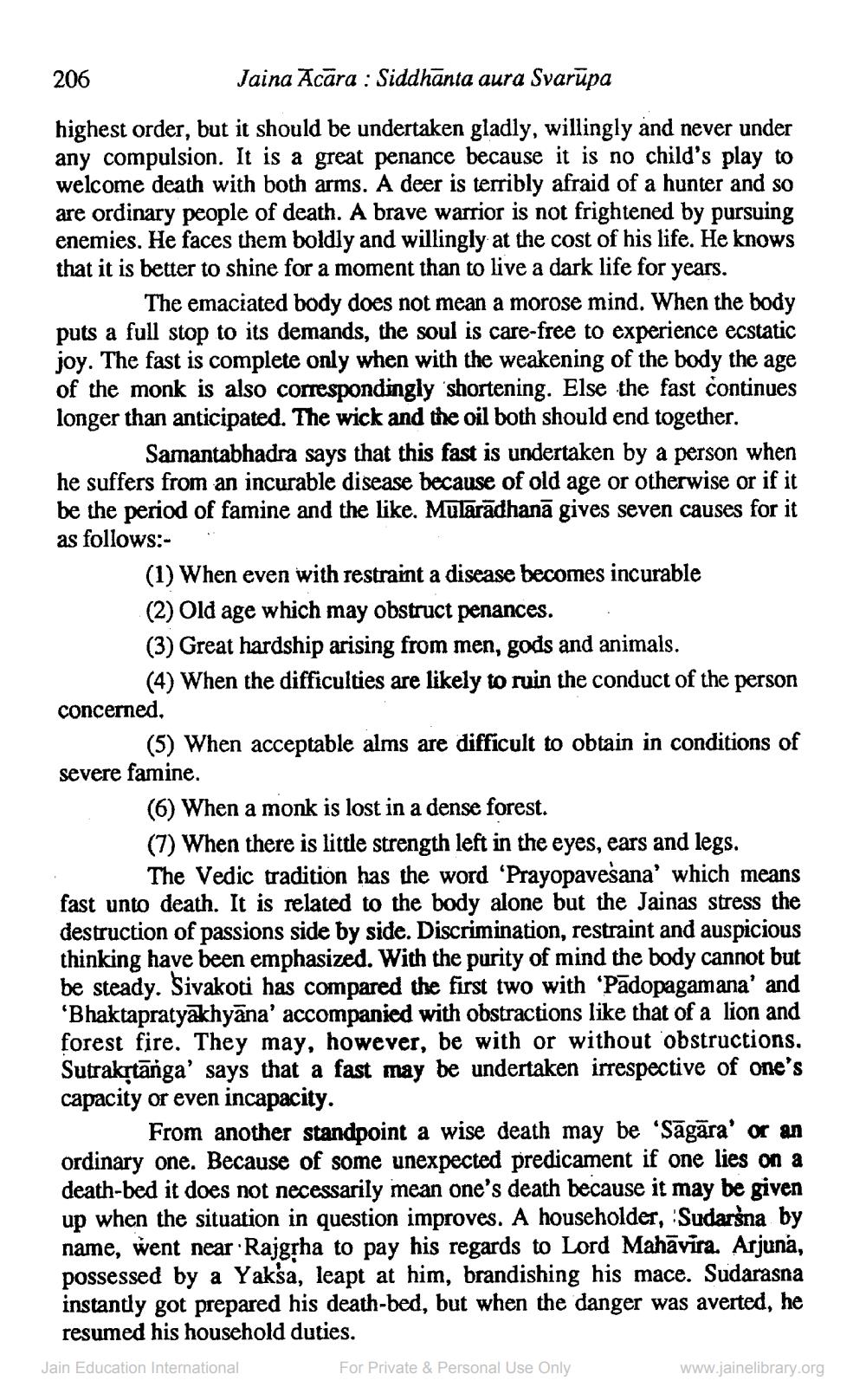________________
206
Jaina Acāra : Siddhanta aura Svarūpa
highest order, but it should be undertaken gladly, willingly and never under any compulsion. It is a great penance because it is no child's play to welcome death with both arms. A deer is terribly afraid of a hunter and so are ordinary people of death. A brave warrior is not frightened by pursuing enemies. He faces them boldly and willingly at the cost of his life. He knows that it is better to shine for a moment than to live a dark life for years.
The emaciated body does not mean a morose mind. When the body puts a full stop to its demands, the soul is care-free to experience ecstatic joy. The fast is complete only when with the weakening of the body the age of the monk is also correspondingly shortening. Else the fast continues longer than anticipated. The wick and the oil both should end together.
Samantabhadra says that this fast is undertaken by a person when he suffers from an incurable disease because of old age or otherwise or if it be the period of famine and the like. Mularadhanā gives seven causes for it as follows:- .
(1) When even with restraint a disease becomes incurable (2) Old age which may obstruct penances. (3) Great hardship arising from men, gods and animals.
(4) When the difficulties are likely to ruin the conduct of the person concerned,
(5) When acceptable alms are difficult to obtain in conditions of severe famine.
(6) When a monk is lost in a dense forest. (7) When there is little strength left in the eyes, ears and legs.
The Vedic tradition has the word 'Prayopavesana' which means fast unto death. It is related to the body alone but the Jainas stress the destruction of passions side by side. Discrimination, restraint and auspicious thinking have been emphasized. With the purity of mind the body cannot but be steady. Sivakoti has compared the first two with 'Padopagamana' and ‘Bhaktapratyakhyāna' accompanied with obstractions like that of a lion and forest fire. They may, however, be with or without obstructions. Sutrakstānga' says that a fast may be undertaken irrespective of one's capacity or even incapacity.
From another standpoint a wise death may be 'Sāgāra' or an ordinary one. Because of some unexpected predicament if one lies on a death-bed it does not necessarily mean one's death because it may be given up when the situation in question improves. A householder, Sudaršna by name, went near Rajgrha to pay his regards to Lord Mahāvīra. Arjuna, possessed by a Yaksa, leapt at him, brandishing his mace. Sudarasna instantly got prepared his death-bed, but when the danger was averted, he resumed his household duties.
Jain Education International
For Private & Personal Use Only
www.jainelibrary.org




